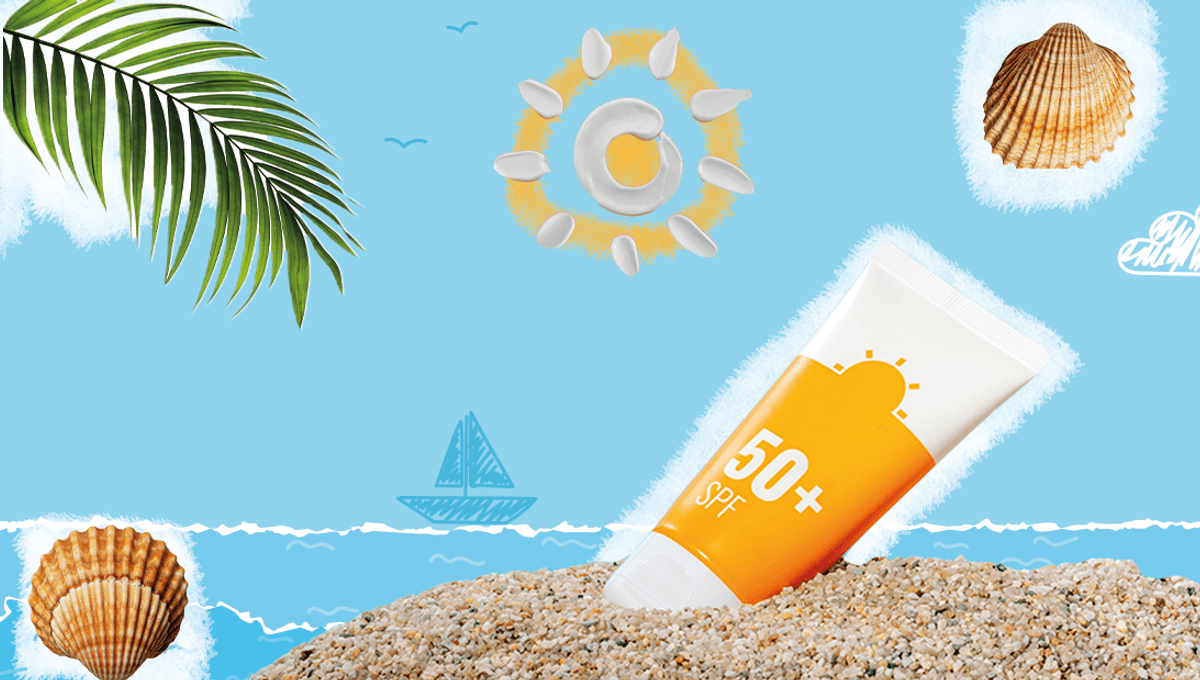
Keeping your skin protected whilst out in the sun is one of the most important things you can do for your health – there’s no such thing as a safe sun tan after all. Trouble is, things can get a little confusing when it comes to knowing what product to use. Some people will tell you sunscreen is best, while others sing the praises of sunblock – but what are they, and how are they different from each other?
Before we dive into the answer, it’s important to note that the terms “physical sunscreen” or “mineral sunscreen” are now considered more appropriate than “sunblock” – you won’t see the term “sunblock” on product labels any more, at least not in the US.
That’s because these products are FDA-regulated and back in 2011, the agency banned manufacturers from using the term on the grounds that it could “mislead or confuse consumers into thinking that the product blocks all light from the sun”, which it doesn’t. Plus, some sun protection products actually contain both physical sunscreen and chemical sunscreen.
What is (chemical) sunscreen?
This type of sun protection can be referred to as chemical sunscreen not because it’s made up of chemicals and others aren’t – everything is made of chemicals, including physical sunscreen – but because it protects our skin by making use of a chemical reaction.
Commonly used active ingredients such as avobenzone, oxybenzone, and octinoxate absorb UV rays and convert them into small amounts of heat, which is then released from the skin.
For some (but not all) chemical sunscreens, this process breaks the chemical bonds, meaning that they can only take so much of you being out in the sun before their effectiveness is reduced – one good reason to reapply them regularly!
What is sunblock (aka mineral or physical sunscreen)?
Physical or mineral sunscreens are named this way because, traditionally, they provide a physical barrier that reflects UV radiation. These ingredients typically include zinc oxide and titanium dioxide.
However, research has now found that more recent types of physical sunscreen contain much smaller particles of the active ingredients that, like chemical sunscreens, primarily absorb UV rays, although they do still reflect a small amount too.
Which one should I use?
It’s safe to say that both types of sunscreen are better than no sun protection at all. They both achieve the same important goal – protecting your skin – just in different ways.
According to the American Academy of Dermatology, the bottom line is to choose a product that works for you, but also offers broad-spectrum protection (this means it protects against both UVA and UVB rays), an SPF of 30 or higher, and water resistance. Regardless of the type of sunscreen you use, it should be reapplied often, usually recommended to be every two hours. This is because they can wear off over time, leaving you with reduced, patchy protection,
Nevertheless, there are differences that don’t involve how they work which might mean someone prefers one kind over the other.
For example, some people with sensitive skin or certain skin conditions might prefer to use physical sunscreen, as chemical sunscreens can contain ingredients that are allergenic or irritating to the skin, whereas physical sunscreens are less likely to.
Then there’s personal preference about how you want your skin to look while wearing sun protection. Chemical sunscreens might leave you looking a bit shiny (although there are mattifying types out there) but are usually transparent once applied. Physical sunscreen, on the other hand, can leave you with a white cast – especially visible on darker skin tones – although there are tinted formulations out there that attempt to minimize this.
As dermatologist Saira George, MD told the MD Anderson Cancer Center’s Cancerwise blog: “There are so many different options for sunscreens now; there’s one out there for everyone. The best sunscreen is the one you’ll wear regularly.”
All “explainer” articles are confirmed by fact checkers to be correct at time of publishing. Text, images, and links may be edited, removed, or added to at a later date to keep information current.
The content of this article is not intended to be a substitute for professional medical advice, diagnosis, or treatment. Always seek the advice of qualified health providers with questions you may have regarding medical conditions.
Source Link: Sunscreen Vs. Sunblock: What’s The Difference?